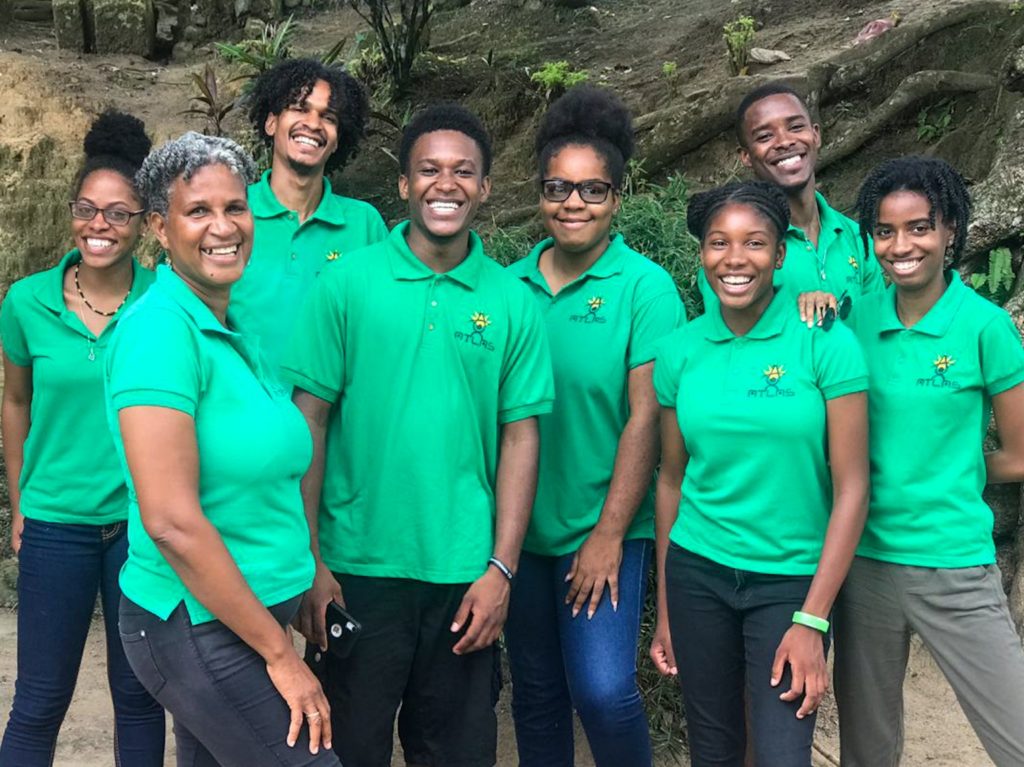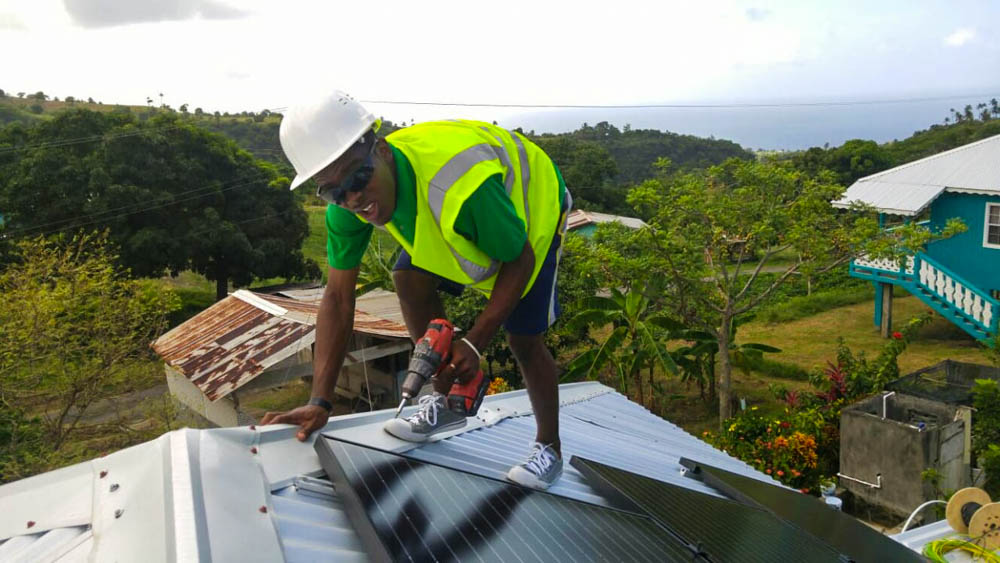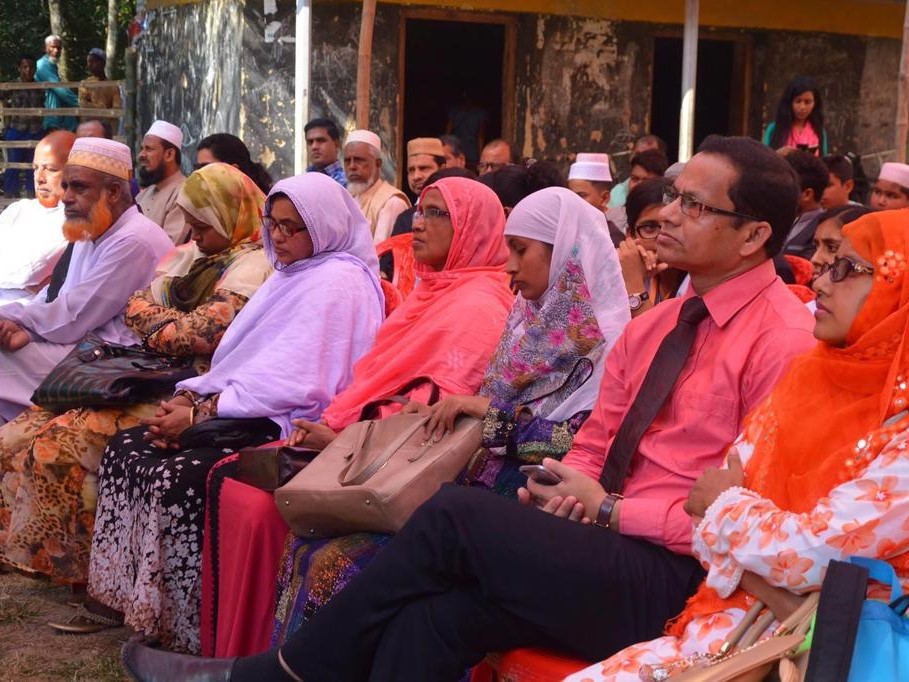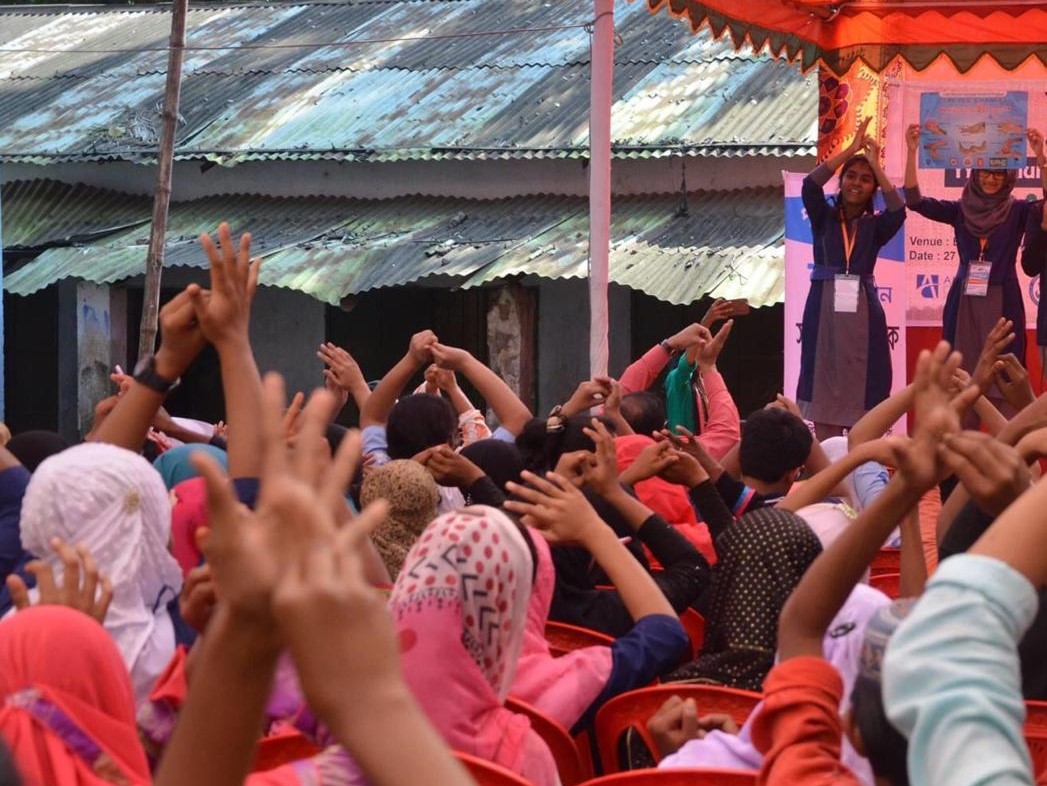Youth around the world are leading positive change in their communities and beyond. What drives these young people and how do their actions lead to positive outcomes?
On a blindingly bright August day in 2016, I faced a dual assault of heat and light. The galvanised roof which I was standing on was reflecting the sun overhead. I looked out at the Caribbean Sea, trying to make out the vague outline of the island of St. Vincent in the distance to distract myself from the sweat dripping into my eyes which couldn’t be wiped away.
My hands were occupied holding on to one panel of a solar system which was being screwed into place by a chef who had traded his knives for a drill. Joining us in sweaty torment were students on holiday from school and university as well as Popeye, the dreadlocked electrician who was supervising and giving sage advice like ‘don’t fall off the roof’.
This eclectic bunch made up the youth group, ATLAS. Despite the blazing sun, we were buzzing with energy as we were finally making our first solar system installation. We’d been waiting two years for this. At one point half the group fell ill with Chikungunya but this wouldn’t stop us. We were happy to see our project coming to life.

Young people have more energy to do these kinds of things
Quanley Marieatte
ATLAS members look back on our solar project as one of the most worthwhile things to have spent our late teens and early 20s on. The group has continued to recruit young people and the youngest current member is sixteen. We found, then and now that we shouldn’t underestimate people’s capabilities because of their age.
Quanley Marieatte, one of the founding members of ATLAS says, “Involving young people creates positive movements because you foster within the young people a habit of helping. If you go by the typical stereotype of young people, they have more time and less commitments so they can expend more of that time on community development projects.
Another thing is that young people have more energy to do these kinds of things too. If it’s interesting they will put much more effort into it. You get a great feeling when you accomplish something with a group.”
This early exposure to civic engagement seems to have made us want to keep doing more. It was almost addictive. This is the principle that guides Action for Conservation, a UK based charity aiming to empower young people to protect nature and the environment. The charity was founded in 2014 and has regularly held outreach programmes to familiarise young people in the UK with the natural world in the hopes that they will take active roles in conservation.
They can obviously be a huge part of positive change, creating and shaping the future they want to see
Hendrikus van Hensbergen
According to Hendrikus van Hensbergen, the founder of Action for Conservation, it is important to engage young people in their teenage years. That is when they are forming their identities and deciding what their values are. He says, “the latest research shows that there’s a real dip in connection to nature in those teenage years and that dip and the level you dip to translates to the level of connection and the sense of reponsibility and desire to take action in adulthood.
“So, it’s a really important time to engage young people and get them on board with what we’re doing. It’s their future we’re talking about. The decisions we’re making have huge ramifications for them and for their lives in the future. More important really than involving anyone else is involving the people who this will impact, and they can obviously be a huge part of positive change. Creating and shaping the future they want to see.”
Exposure to issues in youth can make people want to tackle those issues. ATLAS was formed in 2012 to create opportunities for the youth of our community, Choiseul to meet our potential. Choiseul is a fishing village found in the shadow of the twin Pitons, two mountainous volcanic plugs, on the south west coast of St. Lucia. With a population just over 7000, there’s not a lot going on.
As the group grew, so did our awareness. Erika, Dean, Maria, and the infamous Tomas. Not members of our group but the names of the tropical storms and hurricanes which we had seen do tremendous damage to our island and sister islands. Increased storm frequency and larger scale damage. Climate change.
Many young people in developed countries are now becoming activists following inspiration from other youths, frequently refered to as The Greta Effect. But for us, we didn’t need someone to look to. We could see it happening around us in real time so of course we had to do something.

There was a storm one Christmas Eve, well outside the typical season which should have ended in November. Some ATLAS members awoke on Christmas day that year in cars and buses. The main bridge connecting our rural community to the more urban areas was washed away. Those who had gone for some last minute shopping could not return home. A year after that, in 2014 we started the first plans of our climate change mitigation project that would eventually see us climbing people’s houses.
Ngosong Clement recently won the Global Changemakers Essay Competition with his biographical essay detailing his journey as a youth activist in Cameroon. He believes that young people should be made aware of all the opportunities available that will enable them to make a difference. It is his view that while this sort of work can benefit communities, the individual young people who are working for these communities stand to gain as well.
“It really became my purpose, trying to reduce the opportunity gap between students in urban areas and students in rural areas. I always try to get other people engaged in this process because it’s something I cannot do on my own,” says Nsosongo. “Most people that will work with me are people that really know the importance of volunteering and community service.”
We are no longer the future but the present
Rijve Arefin
Governments should invest in their young population and make space for them to flourish. Rijve Arefin, one of the founders of Awareness 360, a group of young campaigners believes that young people deserve to be heard as their work is fuelled by passion. He feels that young minds have innovative ideas which can be shaped into ground-breaking solutions.
Rijve says, “It is extremely crucial for young people to step up and take action because we have the potential and drive to actually make change happen. We are no longer the future but the present. If a decision is to be made regarding us and our future, we deserve a seat at the table. We have the incredible power of resilience and perseverance. We can be a driving force for any nation and hence our capacity should be fully unleashed.”
In any case, those who are directly touched by the actions of these youth will show appreciation. For the people of La Maze and Monzie, ATLAS’ new water project will bring much needed relief. Quanley says, “we did get a very good reception. Almost every time we went in the community to do surveys, and talk to the people, and do things for the project, they gave us fruits and food from their yard.”
An inconsistent water supply means that the residents, from primary school children to the elderly have to leave their homes to access water. Their primary source is a chous or spring in the hills, which is dangerous to get to and brings other problems as it is on private land. This issue is not unique to La Maze and Monzie.

Water scarcity is a problem that will only increase in the face of climate change and innovative young people might offer solutions. Awareness 360 was founded by Rijve and Shomy Hasan Chowdhury to campaign for Water, Sanitation and Hygiene (WASH), Education, Women Empowerment and Youth Leadership. They realised that they had certain privileges that other people in their wider communities did not and decided to create a platform to try and bridge that gap.
Rijve recalls a WASH campaign in his home village in Gazipur, Bangladesh. He says, “My village is catching up with the fast-paced development progression of the country, especially because it’s located very near to the capital city. Things are changing, but the people’s genuineness still remain the same. The smell of rain, the walks by the paddy fields, the aroma of my grandma’s chicken curry, the warmth of home – it’s an experience altogether. When I was abroad for a few years, I yearned for those striking moments.
“I used to spend my childhood summers there and a lot of people literally saw me grow up. They never quite understood what I do. Once we finished the project, they realised why it’s impactful and thanked me for not forgetting my roots. That’s certainly a very fond memory.”
